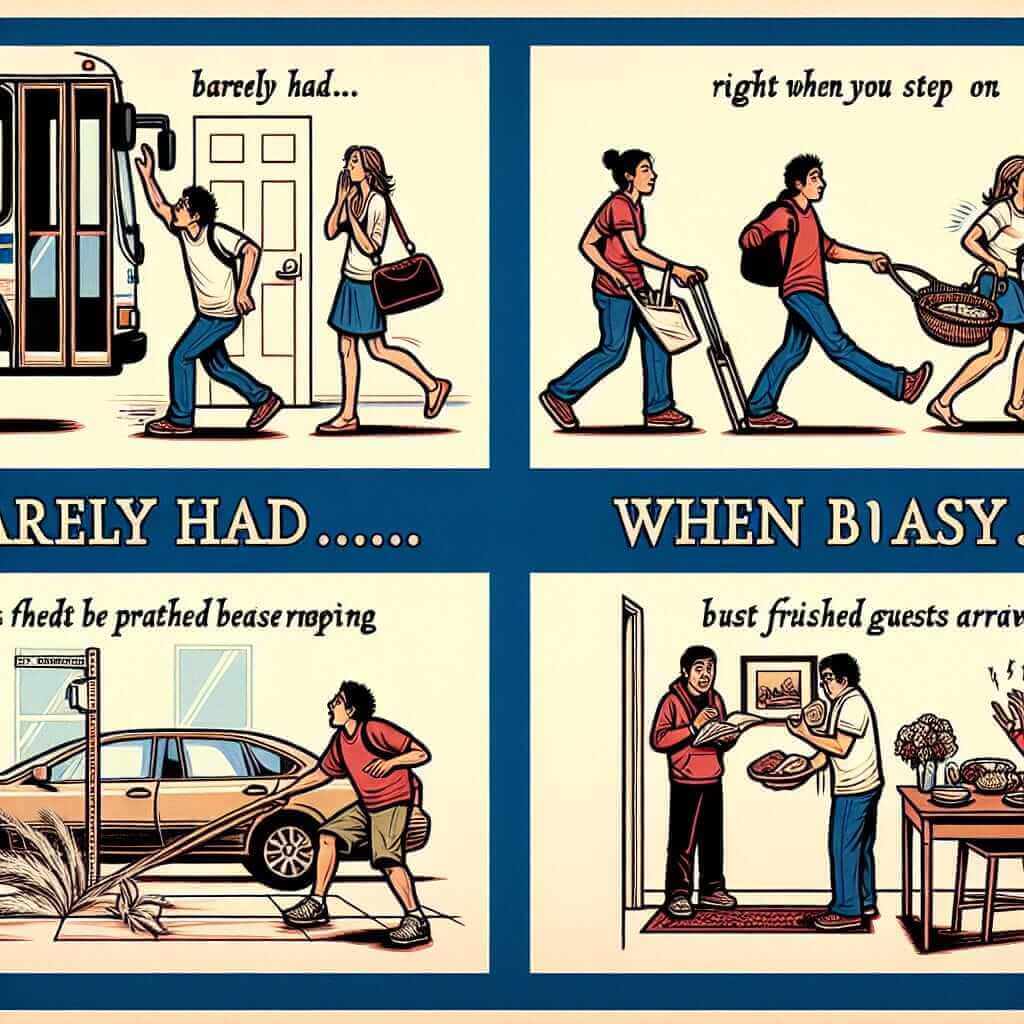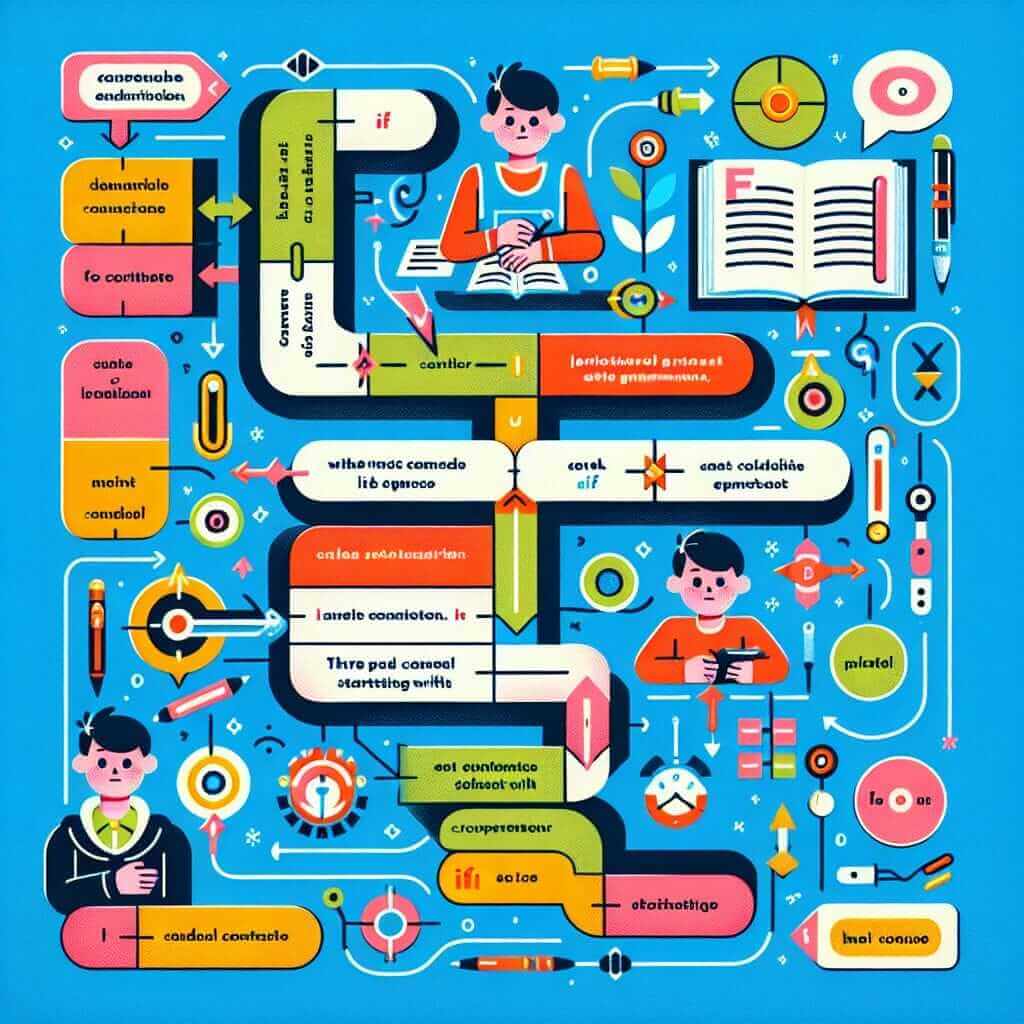Are you aiming for a band 7 or higher on the IELTS? Mastering complex grammatical structures is essential for achieving this goal. One such structure that often trips up even advanced learners is the “barely had… when…” construction. This structure is not only grammatically intricate but also highly effective in adding sophistication and fluency to your writing and speaking.
Nội dung bài viết
Consider these examples of how “barely had…when…” can be applied across different sections of the IELTS:
Speaking (Part 2: Describe a time you had to wait for something):
“Barely had I taken my seat at the doctor’s office when my name was called.”
Here, the speaker emphasizes the immediate sequence of events, highlighting how quickly they were seen by the doctor.
Writing (Task 1: Describing a process):
“Barely had the mixture been heated to boiling point when it began to solidify.”
In this example, the writer uses the structure to depict a rapid change in the described process.
Listening (Completing sentences):
“The speaker mentioned that barely had the concert __ when the fire alarm went off.”
Understanding the use of “barely had…when…” in this context can help test-takers predict the missing word, likely related to the start of the concert.
Deconstructing “Barely Had… When…”
The “barely had…when…” construction is used to describe an action that had just happened when another action immediately followed. It signifies a very short time gap between two events and often implies an element of surprise or suddenness.
Grammar Breakdown:
This structure is a type of past perfect tense used to highlight that one past action was completed just before another past action began.
Formula:
Barely + had + Subject + Past Participle + when + Subject + Past Simple
Example:
Barely had she finished her presentation when the fire alarm sounded.
Analysis:
- “Barely had she finished” uses the past perfect tense to show the first action was completed just before the second action.
- “When” connects the two clauses, indicating the immediate sequence of events.
- “The fire alarm sounded” is in the simple past tense, indicating the second action.
Applying “Barely Had… When…” to IELTS Writing and Speaking
This structure is particularly useful in narrative writing (IELTS Writing Task 1 – describing a process or a sequence of events) and in Speaking Part 2 when describing an experience.
Example (Writing Task 1):
The diagram illustrates the process of making handmade paper. Barely had the pulp mixture been poured onto the mesh screen when the excess water began to drain away, leaving a thin layer of fiber.
Example (Speaking Part 2):
“I was incredibly nervous on my first day of university. I remember barely had I entered the lecture hall when the professor called on me to answer a question. My heart skipped a beat!”
 Barely Had When Construction Example
Barely Had When Construction Example
Reaching for a Higher Band: Variations and Synonyms
To achieve a higher band score, demonstrate your range of grammatical structures and vocabulary. Here are ways to elevate your use of “barely had…when…”:
1. Synonyms:
- Scarcely had… when…
- No sooner had… than…
- Hardly had… when…
Examples:
- Scarcely had the train left the station when I realized I’d forgotten my luggage.
- No sooner had she hung up the phone than it rang again.
2. Inversion for Emphasis:
Notice how “barely,” “scarcely,” “no sooner,” and “hardly” trigger an inversion in the first clause (had + subject + past participle). This inversion further emphasizes the immediacy of the first event.
Common Pitfalls to Avoid
- Incorrect Tense Sequence: Ensure you use the past perfect after “barely had” and the simple past in the second clause.
- Missing Inversion: Remember to invert the subject and auxiliary verb (had) in the first clause.
Conclusion
Mastering the “barely had… when…” structure can significantly enhance the sophistication and fluency of your language, leading to a higher band score on the IELTS. Practice incorporating this construction into your writing and speaking, paying close attention to the tense sequence and inversion. With consistent effort, you’ll be able to confidently utilize this and other complex grammatical structures, setting yourself apart as a proficient user of the English language.


